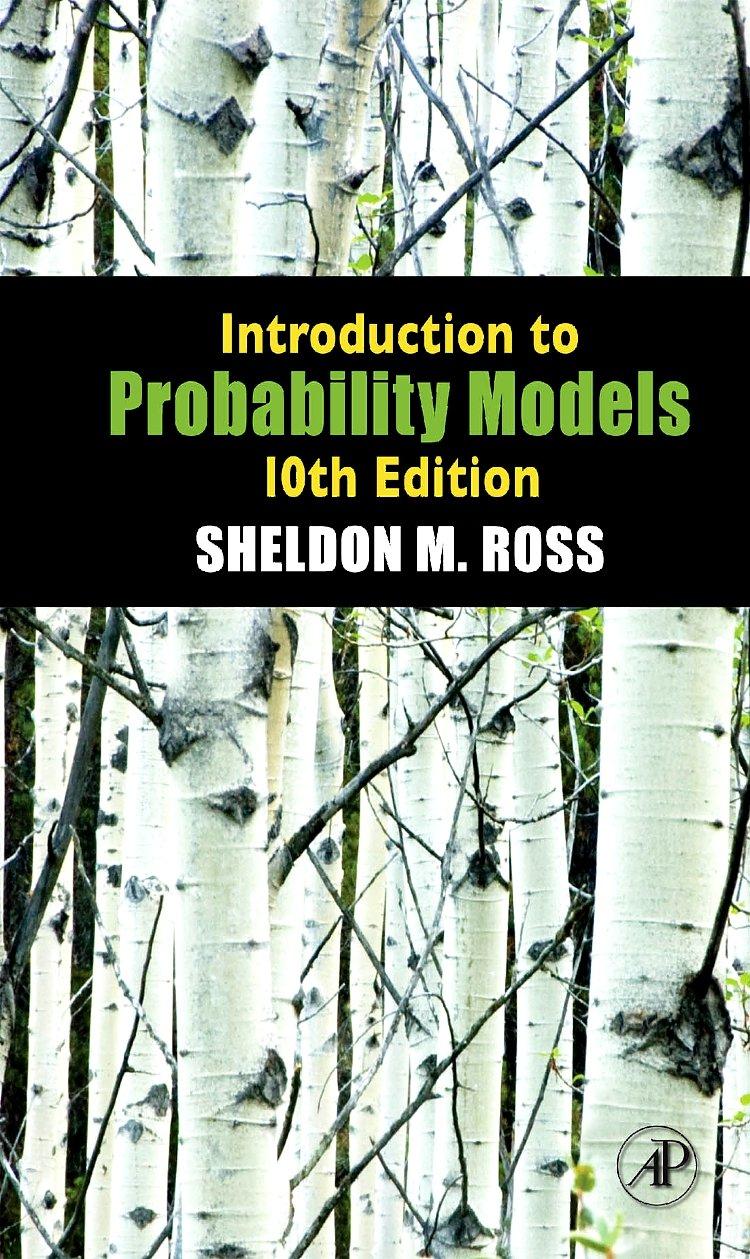93. Consider a sequence of independent trials, each of which is equally likely to result in any...
Question:
93. Consider a sequence of independent trials, each of which is equally likely to result in any of the outcomes 0, 1, . . . ,m. Say that a round begins with the first trial, and that a new round begins each time outcome 0 occurs. Let N denote the number of trials that it takes until all of the outcomes 1, . . . ,m−1 have occurred in the same round.
Also, let Tj denote the number of trials that it takes until j distinct outcomes have occurred, and let Ij denote the jth distinct outcome to occur. (Therefore, outcome Ij first occurs at trial Tj .)
(a) Argue that the random vectors (I1, . . . , Im) and (T1, . . . , Tm) are independent.
(b) Define X by letting X = j if outcome 0 is the jth distinct outcome to occur.
(Thus, IX = 0.) Derive an equation for E[N] in terms of E[Tj], j = 1, . . . ,m − 1 by conditioning on X.
(c) Determine E[Tj], j = 1, . . . ,m − 1.
Hint: See Exercise 42 of Chapter 2.
(d) Find E[N].
Step by Step Answer:







